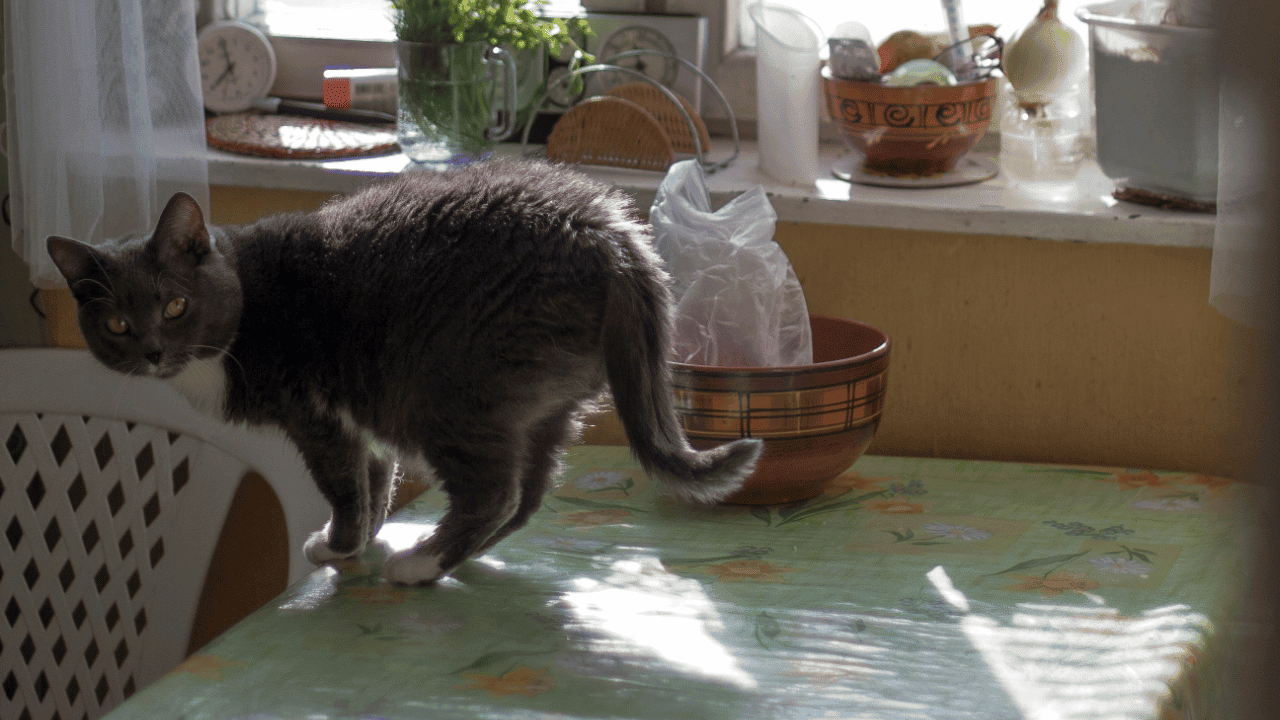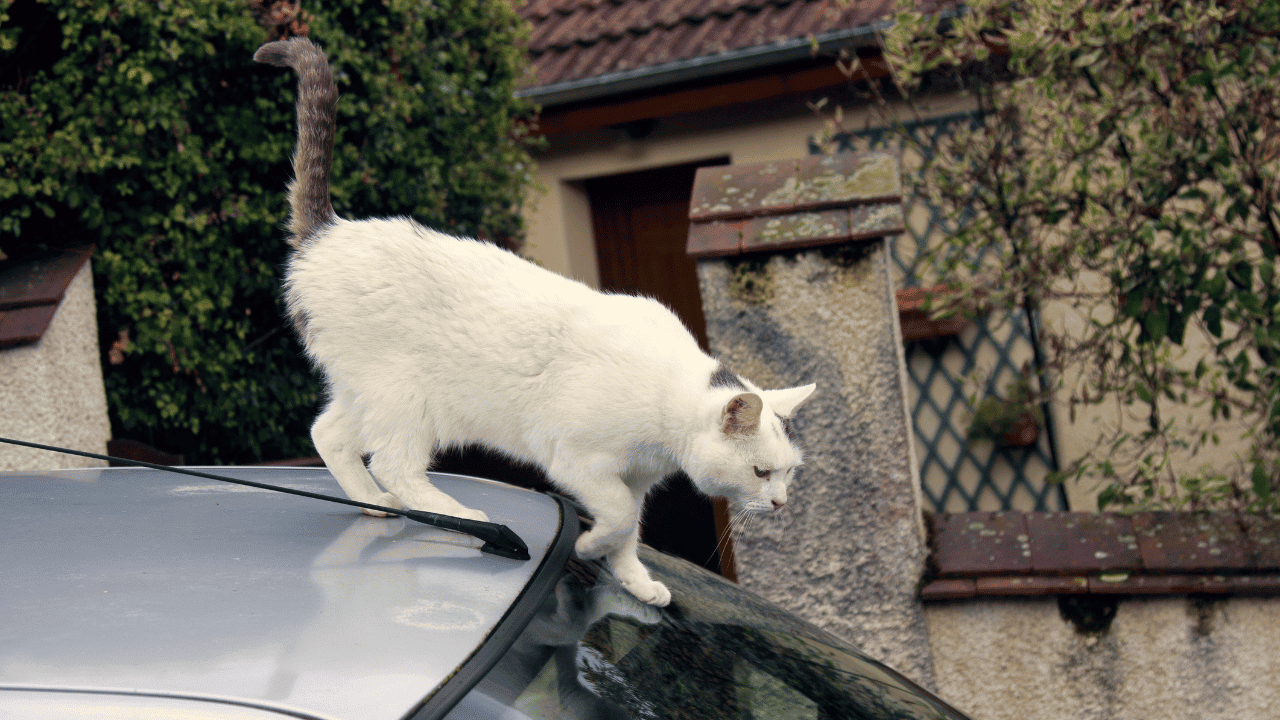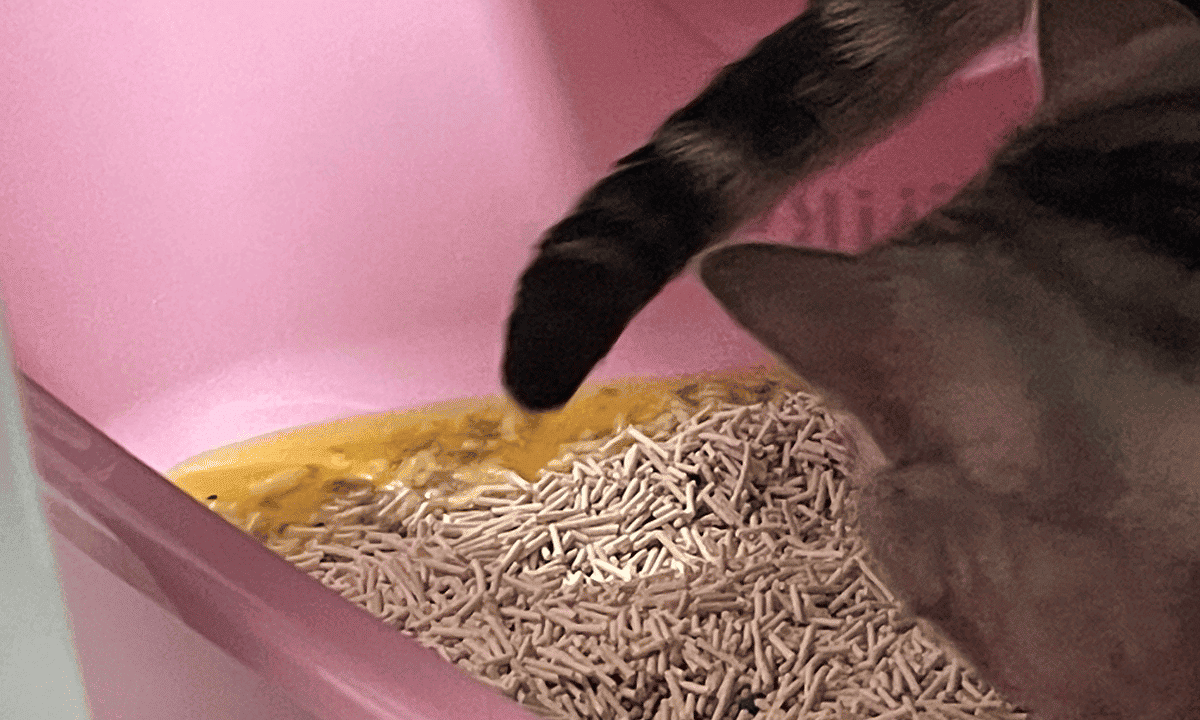Your Cart is Empty
How To Get Rid Of Cat Allergies Naturally
by Dr. Lizzie Youens BSc (Hons) BVSc MRCVS July 10, 2023

Do you itch and sneeze your way through summer? Then you might have sympathy for our allergic feline friends!
Cat allergies often present as itchy, sore patches of skin. They can be challenging to treat, requiring lots of different strategies.
Cats can be allergic to many other things, and finding the cause is helpful. Pet owners often try to help their allergic cats at home as much as possible.
Learn all about feline allergies in this article! Let's take a look at practical and achievable natural remedies for cats.
IN THIS ARTICLE
What Is An Allergy

An allergy happens when a cat's body responds to a standard, harmless substance as if it is a threat.
The cat's immune system activates, leading to inflammation. This response leads to uncomfortable symptoms, such as red, itchy, and sore skin.
An 'allergen' is the term used to describe the substance which has caused the allergy.
What Can Cats Be Allergic To

Cats can be allergic to an extensive range of substances - and some cats have many allergies.
Common allergies in cats include:
- Flea allergic dermatitis (FAD) - cats can be allergic to flea saliva and so react to flea bites
- Environmental allergies - cats can be allergic to many things in and outside the home. Examples include dust mites, pollens, weeds, and mold.
- Food allergies - certain foods can be allergens for cats. The culprit is usually a protein source, such as chicken or beef.
Signs Of Allergies In Cats

Allergies in pets can cause various symptoms, but in my experience, the most common signs are on the skin.
If I see a cat with sore, itchy skin come to see me at the vet's, allergies are always a possibility in my mind!
Common signs include:
- Itching (pruritus)- this displays as excessive grooming, licking, or scratching.
- Red skin or a rash
- Moist sore areas on the skin
- Scabs or surfy skin
- Hair loss (alopecia)
Cats with allergies can also present with an upset stomach. This may include bouts of diarrhea, vomiting, and flatulence.
They can also show signs such as sneezing, discharge from the nose, and wheezy breathing.
How Can You Get Rid Of Cat Allergies

When I diagnose a cat with allergies, an owner often asks, 'So how can we get rid of cat allergies'?
Sadly, allergies are complex illnesses that are present for life.
The treatment strategy depends on long-term management rather than cure.
However, there are a range of potential treatments available!
The key to success involves finding a regime that works for each cat - and their owners!
Natural options

Understandably, many cat owners want natural options for treatment rather than medicines.
Here are a few helpful strategies that I always discuss with owners of cats with allergies.
In my experience, many cats will need veterinary intervention alongside other treatments.
Avoidance

In an ideal world, keeping a cat away from whatever they are allergic to is a good solution for allergies. Often, this is not practical!
However, there are some helpful ways of reducing your cat's exposure. This can hugely help to reduce symptoms.
If your cat has a known or suspected food allergy, then it is often recommended to change its diet.
Try a food with a completely different protein source. This could mean moving to a fish-based food if they usually eat a chicken diet, for example.
The other option is to try a veterinary prescription diet for food allergies. These often have a hydrolyzed protein source.
Chat with your veterinarian about what might be best for your cat's diet.

Allergies such as pollen can be difficult to avoid, especially for outdoor cats.
You could limit time outside and wipe them down when they return outdoors.
These can all help reduce exposure to environmental allergens. Your veterinarian will be able to recommend a suitable shampoo. Some patients respond well to a HEPA filter or air purifier.
Cats who are allergic to fleas or dust mites need control of their environment. I recommend regular hoovering and washing of bedding and soft furnishings. Optimal parasite control is also essential.
Bathing
Animals with allergies have a poor skin barrier.
This allows access to allergens but also for infections to flourish. Regular use of wipes, shampoos, and mousses can help keep cats' skin healthy.
Firm, healthy skin allows them to fight allergies and infections.
Supplements
Essential fatty acids such as EPA and DHA are used in skin and immune health.
They are, therefore, often recommended for patients with allergies.
These essential fatty acids are usually found in supplements such as fish oils. Doses can vary, so ask your veterinarian what they would recommend.
Veterinary Treatments

Cats with allergies will be in discomfort.
They may also be suffering from common secondary problems such as skin infections. Cats with sore skin should always see a veterinarian. Many will need some medicinal treatment alongside more natural remedies.
There are various treatments your vet may recommend, including:
- Medications - certain drugs can stop the itching and calm the discomfort. Your vet may prescribe antibiotics if there is evidence of infection. Antihistamines may also be helpful.
- Immunotherapy - cats with specific allergies can have an individual 'vaccine' made. This contains small amounts of their particular allergens. It is given to the patient in slowly increasing doses. This teaches the immune system to react better to the allergen.
- Topical treatmentssuch as shampoos, creams, and sprays. These are especially useful for small areas of sore skin.
Summary
Allergies are unpleasant, causing a range of uncomfortable and even painful symptoms. If your cat has sore, red skin or other signs, always take them to a veterinarian.
Managing allergies can be frustrating, but work with your vet! They'll help you find a solution for you and your cat. This may involve a mix of veterinary and more natural interventions.
Leave a comment
Comments will be approved before showing up.


